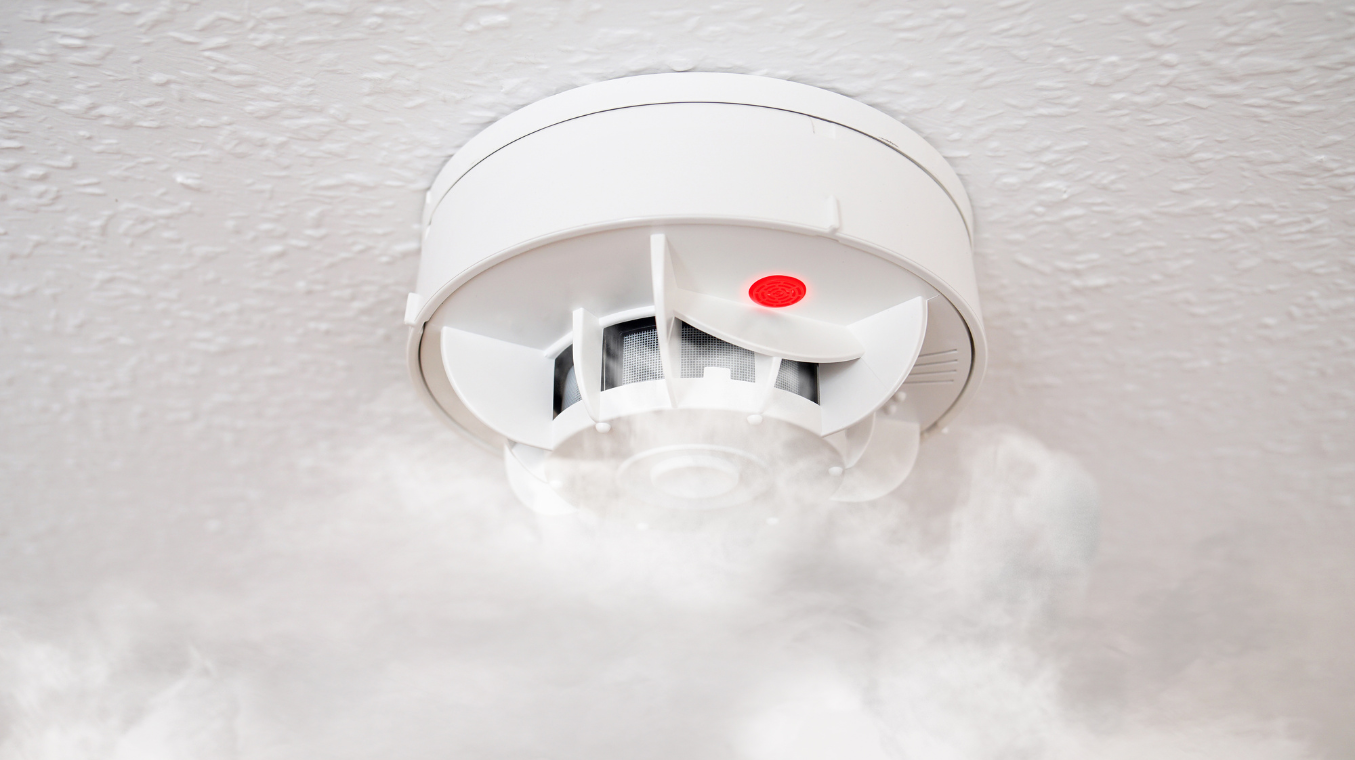What would you do if a fire unexpectedly began in your home? Are you ready to face such situations? A smoke sensor is your first defense against a potentially disastrous fire. We’ll review everything you need to know about this incredible fire safety equipment in this in-depth guide, including how it functions, crucial features, and advice on getting the best one. But let us first understand what these smart smoke detectors are.
What Are Smart Smoke Detectors?
The primary purpose of smoke detectors, usually called smoke alarms, is to detect smoke in its earliest stages. It immediately notifies you of smoke in the air so you can take immediate action. They are the ideal complement to your home protection because of this quality.
Let’s now explore how these life-saving tools function.
How Do Smoke Detectors Work?
Smoke sensors function on a simple principle: detecting smoke particles in the air. When a fire starts and starts producing smoke, these sensors quickly detect smoke. Wondering how? Continue reading.
1. Smoke Particles
In the possibility of a fire, tiny smoke particles are released into the air. These particles contain various chemicals, including carbon compounds.
2. Sensor Activation
Smart smoke sensors typically use two main types of sensors: ionization and photoelectric.
a) Ionization Sensors: These detectors are highly sensitive to fast-burning, flaming fires. They contain a small amount of radioactive material, creating a small electrical current within an ionization chamber. When smoke particles enter the chamber, they disrupt this current, triggering the alarm.
b) Photoelectric Sensors: Photoelectric detectors are better at detecting slow, smoldering fires, which tend to produce more significant amounts of smoke before bursting into flames. These home safety devices work by using a light source and a sensor. When smoke enters the chamber, it spreads the light, causing it to reach the sensor and activate the alarm.
3. Alarm Trigger
When smoke particles enter the detector’s sensing chamber, they disrupt the electrical current, triggering the alarm. It depends on the model, which may manifest as a loud siren, flashing lights, or even a voice alert.
4. Immediate Response
When you hear the alarm, it’s essential to respond immediately. You should evacuate the premises, call 911, and use fire extinguishers if it’s safe.
Now that you understand how these detectors operate let’s explore the features to consider when choosing the right one for your home.
Smoke Detector Features
Below are some of the essential features that can make a significant difference in your fire safety:
1. Battery Backup
Opt for the detectors with long-lasting battery backup capabilities. In an emergency, when the power goes out, these batteries ensure uninterrupted protection. Remember to replace these batteries regularly.
2. Interconnect-Ability
Choose smoke sensors that can communicate with each other. When one alarm detects smoke, all interconnected alarms will sound, providing faster warnings throughout your home.
3. Voice Alerts
These detectors with voice alerts offer more clarity during emergencies. They can provide specific instructions, such as “Fire detected in the kitchen,” helping occupants react appropriately.
4. Hush Button
The hush button is invaluable when dealing with false alarms, which are common during cooking. Temporarily silencing the alarm ensures you can address the situation without the persistent noise.
5. Smart Connectivity
Smart smoke detectors provide remote monitoring and alerting capabilities. You can receive notifications on your smartphone, even if you’re not at home. Integration with home automation systems can automate responses like turning off HVAC systems to prevent smoke spread.
Now, let us learn some crucial tips for selecting a smart detector for your home safety.
Tips For Choosing Smoke Detectors
Selecting a suitable smoke sensor is crucial for your home safety. Here are some helpful tips to help you in making the right decision:
1. Placement Matters
Where you are installing smoke sensors, matters a lot. It would help if you placed them on every level of your home, including the basement and attic, as well as inside and outside sleeping areas. You should go for professional installation for precise placement for best functioning.
2. Wired VS. Wireless Interconnection
Opt for wireless interconnection models if you prefer interconnected smoke detectors but don’t want to deal with wiring. These detectors communicate with each other through radio frequency signals, eliminating the need for extensive wiring installation while providing the same level of protection.
3. Type Of Smoke Detector
As we mentioned earlier, there are generally two types of sensors: ionization and photoelectric. Consider a combination of both types or dual-sensor detectors for comprehensive coverage.
4. Look for Certifications
Seek detectors with certifications from respected organizations like Direct Protection Security. These certifications indicate that the product meets rigorous safety and performance standards.
5. Power Source
Batteries can be powered by smoke detectors or hardwired into your home’s electrical system. Battery-operated detectors are easy to install and suitable for areas without wiring. Hardwired detectors offer continuous power but may require professional installation. Consider your home’s layout and your preference for power source reliability.
6. Interconnectivity
Interconnected smoke detectors communicate with each other, so when one detects smoke, all detectors sound an alarm simultaneously. This feature provides early warning throughout your home, which is crucial for larger residences or multi-story buildings. Ensure the sensors you choose can be interconnected through wiring or wireless connections.
7. Additional Features
Some smoke detectors have additional features like voice alerts and smartphone connectivity, which can send signals to your smartphone, offering remote monitoring and notifications.
Winding Up
Smart smoke detectors are indispensable when protecting your home and loved ones from the devastating effects of fires. Understanding how they work and choosing the right features can significantly affect your overall safety. Remember, investing in quality detectors is an investment in peace of mind. Don’t wait; take action today to ensure your home has the best fire safety equipment available.








